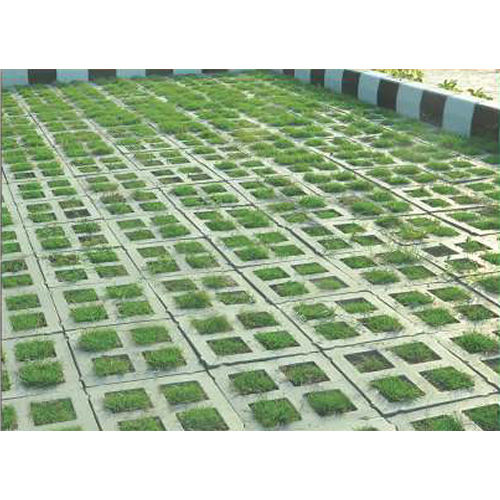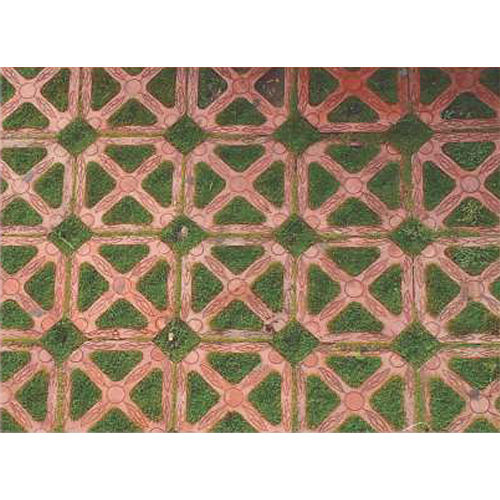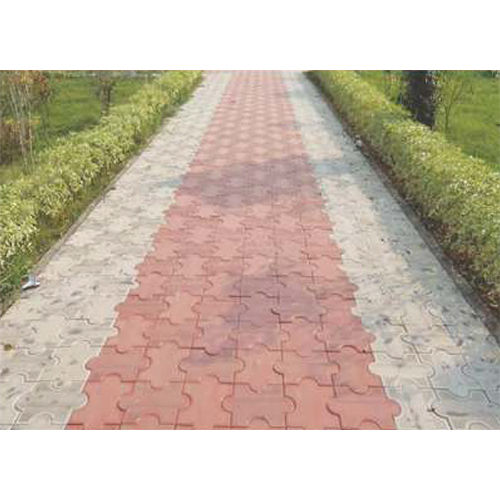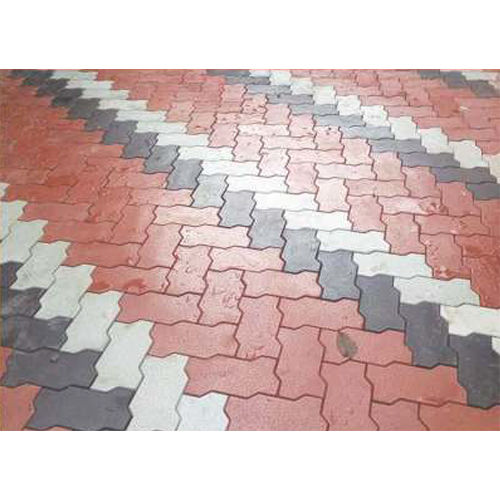Most Popular Products
|
Everything You Need to Know About Paver Blocks
Paver Blocks are a tremendous tool for boosting the aesthetics and use of outdoor spaces. These adaptable and strong building materials are now a well-liked option for a variety of construction, hardscaping, and landscaping tasks. Everything you need to know about Paver Block, from their varieties and installations to upkeep and inventive uses, will be covered in this thorough book.
Types of Paver Blocks:
Paver block are versatile and customizable for many applications since they are available in a variety of materials, forms, and sizes. Choosing the best pavers for your particular needs may be made easier if you are aware of the many types:
- Concrete Pavers: Concrete pavers are the most prevalent and commonly used kind. They are renowned for their availability in a wide range of colours and designs, affordability, and durability. For driveways, patios, walks, and other surfaces, concrete pavers are appropriate.
- Brick Pavers: Brick pavers have a timeless, traditional appeal. They are perfect for producing classic or rustic patterns since they are made from burned clay Blocks. For sidewalks, patios, and historic restoration projects, bricks pavers are frequently employed.
- Stone Pavers: Pavers made of natural stone, such as granite, limestone, and sandstone, provide a classy, upscale appearance. They are frequently employed in upmarket residential and commercial constructions because they are ideal for creating opulent outdoor environments.
- Permeable Pavers: The holes between permeable pavers are made to let water travel through. They are a great option for sustainable landscaping and places with drainage issues since they are environmentally friendly and contribute to reducing stormwater runoff.
Installation Process:
Proper installation is essential to ensure the longevity and stability of paver blocks. The installation process typically involves several key steps:
- Site Preparation: The appropriate depth of excavation is performed in the area where the pavers will be laid. The installation of a base material, such as crushed stone or sand, is then carried out, and this is compacted to produce a solid foundation.
- Edge Restraints: Edge restraints are put completely around the project area, often constructed of concrete, metal, or plastic. The pavers are held in place by these constraints, which also prevents them from moving over time.
- Laying the Pavers: A rubber mallet is used to tap the pavers into position once they have been laid in the correct pattern. The right alignment and spacing are kept in mind.
- Joint Sand: Joint sand is brushed over the ground and into the spaces between the pavers after they have been installed. This sand offers some flexibility while helping to stabilise the pavers and inhibit weed development.
- Final Compaction: To ensure that the pavers are put securely in place and the joints are adequately filled with sand, the entire area is compacted once more.
Maintenance and Care:
Paver blocks are relatively low-maintenance, but some care is required to keep them looking their best and functioning correctly over the years:
- Regular Cleaning: Regularly sweep the surface to get rid of dirt and debris, or use a leaf blower. Stains and algae growth may be removed with regular pressure cleaning.
- Weed Control: Check for weed growth in the spaces between the paver joints. As soon as weeds sprout, get rid of them; to stop further growth, think about using joint sand that has weed-inhibiting qualities.
- Sealing: Sealing may improve the colour of some paver types and shield them from stains and deterioration. Refer to the manufacturer's guidelines for the particular paver type you are using.
- Repair Damaged Pavers: To maintain a level and secure surface, any pavers that become cracked or uneven should be quickly replaced.
- Winter Care: When using de-icing salts in areas with chilly winters, use caution since they might harm pavers. To increase traction, choose calcium magnesium acetate or sand as an alternative.
Creative Applications:
Paver blocks offer endless creative possibilities for enhancing your outdoor spaces. Here are some innovative applications to consider:
- Garden Paths: Paver Blocks may be used to create lovely garden walkways. To match the design of your landscape, you may select from a variety of designs and colours.
- Driveways: An attractive and long-lasting substitute for conventional concrete or asphalt driveways is paver Blocks. They come in a variety of designs to complement the appearance of your property and can endure high car traffic.
- Patio and Outdoor Dining Areas: Patios made of pavers offer a secure and fashionable setting for outdoor dining and relaxing. Use various borders and patterns to create a distinctive appearance.
- Pool Decks: Because they are non-slip and keep cool in warm weather, paver blocks are a great choice for pool decks. Construct a welcoming and secure poolside refuge.
- Retaining Walls: Some paver blocks may be used to build retaining walls, giving your landscape a practical and attractive addition. Use them to build elevated flower beds or a patio in your yard.
Benefits of Paver Blocks:
Paver blocks offer numerous advantages that make them a popular choice for landscaping and construction projects:
- Durability: Blocks made of pavers are renowned for their durability and strength. They are resistant to chipping and cracking and can support big weights.
- Design Flexibility: Paver Blocks have a huge variety of materials, colours, forms, and patterns, which opens up countless design options. You may choose a basic, elegant style or make elaborate patterns.
- Easy Repairs: Repairs are simple and affordable since if a paver is broken, it can be replaced separately without impacting the remainder of the installation.
- Low Maintenance: Compared to other outdoor surface alternatives like wood decking, paver blocks require less upkeep. They normally just require occasional sealing and routine cleaning to maintain their superb looks.
- Environmentally Friendly: Because rainfall may infiltrate through the spaces between the blocks, minimising runoff and enabling water to replenish the soil, pavers are frequently seen as ecologically beneficial.
Conclusion :
Paver Blocks are a functional and beautiful option for a variety of outdoor projects. They are a favourite option for paths, driveways, patios, and more because to their durability, design versatility, and simplicity of upkeep. Paver blocks provide a dependable and fashionable option whether you're wanting to increase the utility of your outdoor areas or the visual appeal of your landscape. These blocks can survive the test of time with appropriate installation and care, giving you a long-lasting and attractive surface. To profit from its numerous advantages and improve your outside areas, think about including paver blocks into your upcoming landscaping or building project.
 |
BENGAL PIPE INDUSTRIES
All Rights Reserved.(Terms of Use) Developed and Managed by Infocom Network Private Limited. |





